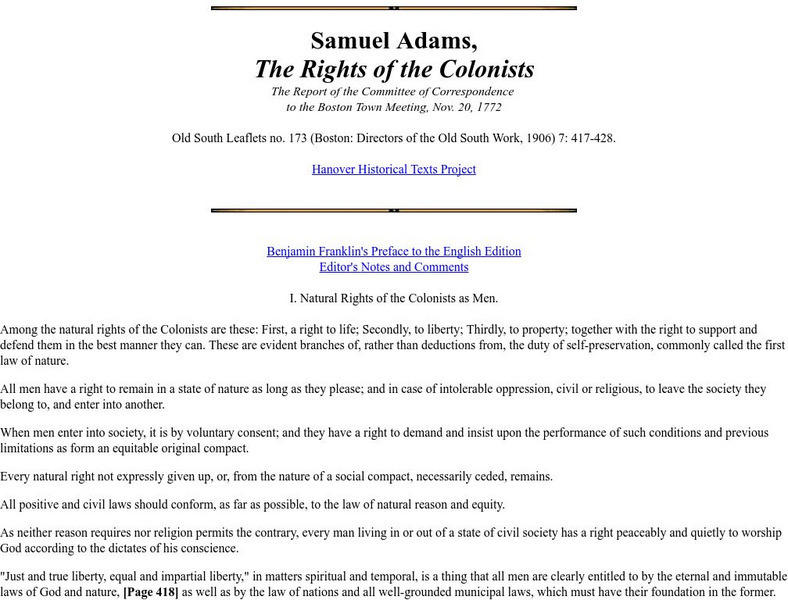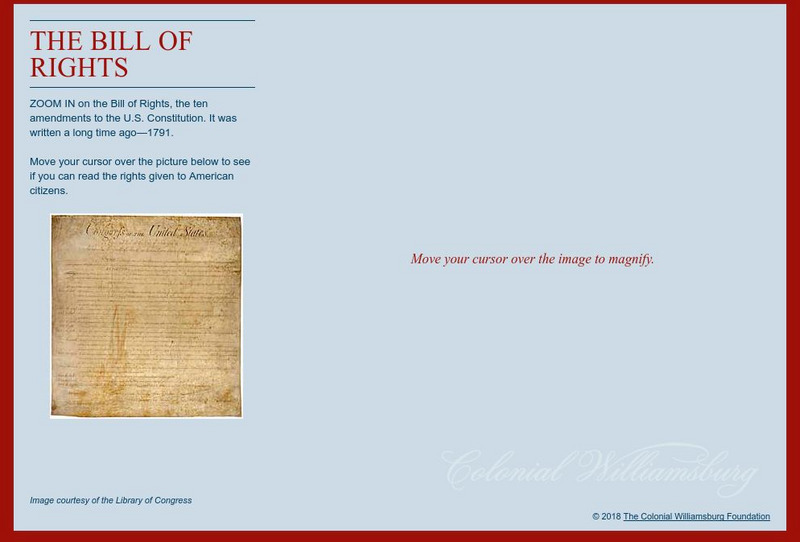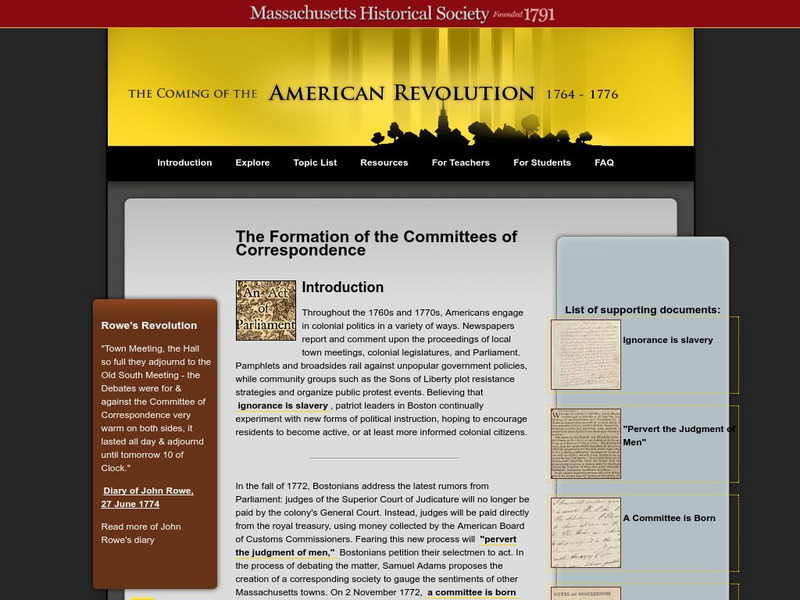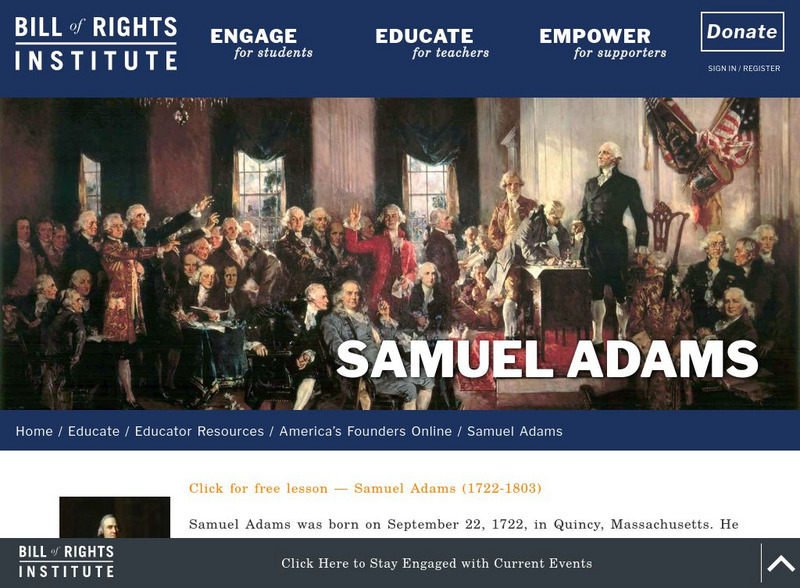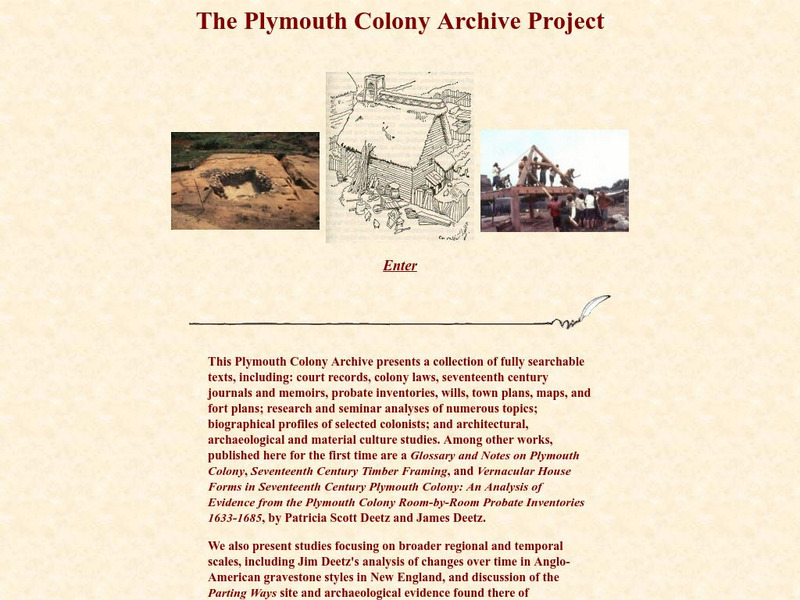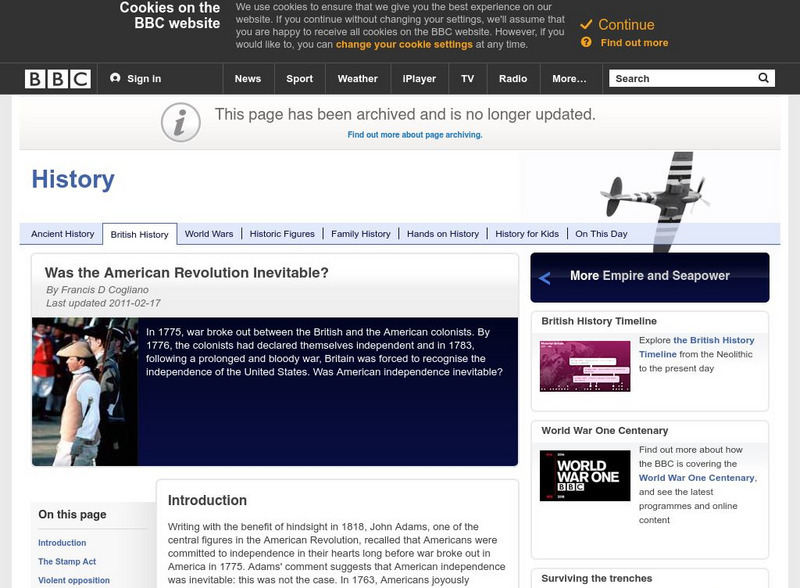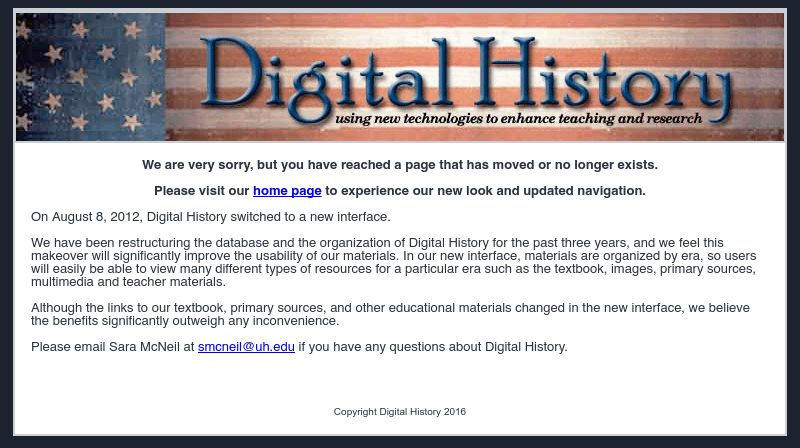Hi, what do you want to do?
Curated OER
Good Brother, Bad Brother
Students are exposed to the writings of John Wilkes Booth. They discover that fanaticism is not just a modern phenomenon. They examine four periods in American history when treason was at issue.
Curated OER
Informational Writing
Fifth graders study Paul Revere. In this writing lesson, 5th graders discuss the elements of writing that help a reader be engage. They read about Paul Revere's life, taking notes about what made his life seem heroic, and write about...
Curated OER
Introduction to Paleontology Lab
Students engage in a lab which introduces them to fossils and paleontology. They examine eleven numbered boxes containing fossils which are related to the questions on this lab then answer questions on a lab sheet imbedded in this plan.
Curated OER
Little America in Liberia
Students study the history of Liberia prior to and after the influx of immigrants of African Americans. They investigate the cultural differences between the African Americans and newly-arrived Liberians.
Curated OER
Freedom Now
Students watch a short video on colonial rule. They discuss how lives were changed once independence was granted in India. They create mock interview sessions acting as political figures involved in an independence movement. They...
Curated OER
A Share in America
Students examine map - reflect on why English colonist kept coming to America (scarcity of land in England / seemingly endless land in America)
Recite line from English poem. They discuss English attitude towards Indians and their lands.
Curated OER
4th Grade Social Studies Quiz
In this social studies worksheet, 4th graders complete multiple choice questions about government, wars, natural resources, and more. Students complete 30 questions.
Curated OER
Eighth Grade Social Studies Quiz
For this Georgia social studies assessment worksheet, 8th graders respond to fifteen multiple choice questions based on eighth grade social studies skills.
Curated OER
"An Eye For An Eye, A Tooth For A Tooth"
Sixth graders debate their reactions to two different historical documents about managing a society. In this U.S. history lesson, 6th graders read two articles on codes and laws from different time periods and debate their...
Curated OER
Reading Comprehension Worksheet: Volcano
In this reading comprehension worksheet, students read a short passage on volcanoes erupting and then answer 4 reading comprehension questions.
Curated OER
Seventh Grade Social Studies Test
In this Georgia social studies assessment worksheet, 7th graders respond to 30 multiple choice questions based on 7th grade social studies skills.
Hanover College
Hanover College: The Rights of the Colonists
The original text of "The Report of the Committee of Correspondence to the Boston Town Meeting, Nov. 20, 1772", written by Samuel Adams and including the preface by Benjamin Franklin written for the edition printed in England.
Yale University
Yale Law School: Resolutions of the Continental Congress, 1765
Contains the primary text of the resolutions against the Stamp Act sent to King George III.
Colonial Williamsburg Foundation
The Colonial Williamsburg Foundation: The Bill of Rights
Take a close look at the United States Bill of Rights, the ten amendments to the U.S. Constitution. It was written a long time ago-1791. Move your cursor over the picture below to see if you can read the rights given to American citizens.
PBS
Wnet: Thirteen: Freedom: A History of the u.s. Independence Webisode 1
Webisode 1-Independence. The history of the United States is presented in a series of webisodes, within each are a number of segments.Included are links to lesson plans, teacher guides, resources, activities, and tools.
University of Oklahoma
University of Oklahoma College of Law: Resolutions of the Stamp Act
Presents the complete text of the Resolutions of the Stamp Act Congress which included fourteen resolutions and was accompanied by several petitions denying Parliament's authority to tax the thirteen colonies.
Massachusetts Historical Society
Mhs: Coming of the American Revolution: Committees of Correspondence
Discusses the formation of the committees of correspondence movement starting with the first one in Boston in 1772. Includes supporting primary source documents and great resources for teachers including lesson plans.
University of Groningen
American History: Outlines: The Frontier Fosters Self Reliance
Based on the theory that because the King had given the colonists so many freedoms, and he had problems on the home-front, the colonists' will was strengthened. This contributed to the Revolution. There are links to Virginia's First...
Bill of Rights Institute
Bill of Rights Institute: Samuel Adams
Samuel Adams was born on September 22, 1722, in Quincy, Massachusetts. He entered Harvard College at the age of 14. During the 1760s, Adams became a leader of the Patriot resistance to the British government's attempt to tax the American...
Constitutional Rights Foundation
Constitutional Rights Foundation: Jonathan Edwards and the Great Awakening in Colonial America
Learning activity on religion and society in which students explore the ideas and events of the Great Awakening and determine the impact they may have had on the American Revolution. Site provides links to wide variety of resources for...
University of Illinois
University of Illinois: The Plymouth Colony Archive Project
This resource presents a collection of searchable texts, including court records, Colony laws, seminar analysis of various topics, and biographical profiles of selected colonists. It also includes a search engine and images.
BBC
Bbc History: British History: Empire: Was the American Revolution Inevitable?
An interesting article that looks at the question of what England could have done to prevent a revolution of the American colonists in 1776. The author believes that there are lessons that one can draw from this series of particular...
Digital History
Digital History: The Road to Revolution
A review of the Age of Revolution, particularly as it was perceived in the American colonies. See how the various actions taken by the British government to control the colonists resulted in uniting the colonists and set the stage for...
Independence Hall Association
U.s. History: Beginnings of Revolutionary Thinking: Impact of Enlightenment
The ideas of the Enlightenment began in Europe, but they were acted upon in the American colonies. See how the philosophies of John Locke and Rousseau influenced the thoughts and actions of Puritan clergy and political figures like...
















